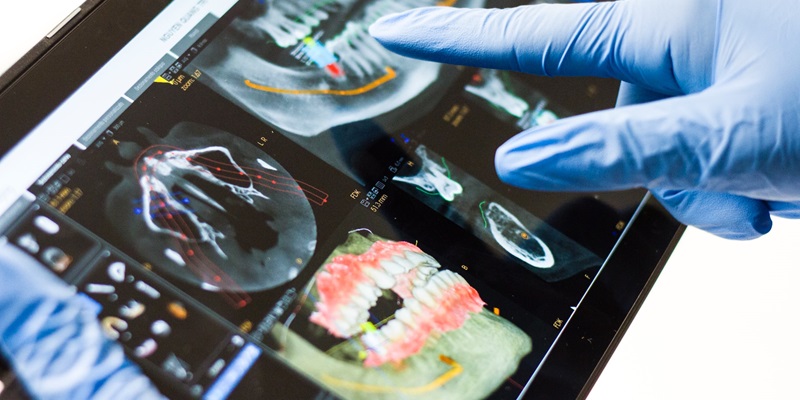In the ever-evolving landscape of cybersecurity threats, data breaches continue to pose significant challenges for organizations across various industries. Delta Dental and its affiliates recently disclosed a data breach that exposed sensitive information linked to a vulnerability in the popular MOVEit file transfer software. This breach highlights the importance of timely detection, response, and enhanced data security measures to safeguard personal information from unauthorized access.
Background: Delta Dental and its data breach linked to MOVEit software vulnerability
Data breaches can have far-reaching consequences for both individuals and organizations. In the case of Delta Dental, a global security incident involving a vulnerability in the MOVEit file transfer software led to unauthorized actors gaining access to protected health information. This breach occurred despite the company’s efforts to maintain robust security protocols.
Breach details: Unauthorized access to protected health information
The breached data included sensitive information such as names, addresses, Social Security numbers, and financial account details. The sheer magnitude of the breach is alarming, affecting approximately 7 million individuals. The inclusion of passport numbers in the accessed data raises concerns about the need to retain such detailed personal information.
Discovery and timeline: The breach was detected on June 1, 2023, with unauthorized access occurring between May 27 and May 30
Detecting a data breach can be challenging, especially when it involves sophisticated cybercriminals. Delta Dental discovered the breach on June 1, 2023, but it took several days to trace the unauthorized access back to a three-day window between May 27 and May 30. In such cases, forensic investigation and cybersecurity expertise are essential to accurately identify the affected individuals and the extent of the unauthorized access.
Delay in response: Forensic investigation and cybersecurity expertise are required
The delay in detecting, responding to, and identifying the accessed data and individuals impacted is not entirely surprising. Investigating a data breach of this scale demands extensive forensic analysis, involving examining logs, network traffic data, and system configurations. Only through such a detailed investigation can organizations determine the full extent of the breach and evaluate the potential impact on affected individuals.
Delta Dental’s response: Notification and support services for affected individuals
Delta Dental is taking immediate action to address the breach and provide support to affected individuals. The company is notifying all individuals whose information was compromised and offering assistance in monitoring their financial statements for any suspicious activity. This proactive approach helps minimize the potential harm caused by the unauthorized access.
Individual actions: Monitoring financial statements and reporting any suspicious activity
In response to the breach, affected individuals are advised to monitor their financial statements, credit reports, and any other accounts associated with their personal information. By actively reviewing these records, individuals can promptly identify any suspicious or unauthorized activity and report it to the appropriate authorities.
Proactive steps for individuals: Changing login information, monitoring credit reports, and practicing cyber hygiene
While organizations play a crucial role in safeguarding personal data, individuals can take proactive steps to protect themselves from data breaches. Changing passwords regularly, using strong and unique login credentials for different accounts, and enabling multi-factor authentication can significantly enhance personal cybersecurity. Additionally, individuals should diligently monitor their credit reports, enabling them to identify any unauthorized inquiries or new accounts opened in their name.
Global impact of the MOVEit vulnerability: Thousands of organizations affected
The Delta Dental data breach is not an isolated incident. The vulnerability in MOVEit file transfer software has affected thousands of organizations globally, ranging from large corporations to government agencies. This widespread impact underscores the urgent need for improved security measures and robust vulnerability management practices across the board.
Questions about data retention: We need to minimize and encrypt personal information
The depth of personal information exposed in the Delta Dental breach raises questions about the need for organizations to retain such detailed data. Balancing the benefits of personalization with the risks associated with data breaches is crucial. Organizations should re-evaluate their data retention policies, minimizing the amount of personal data stored and encrypting it at all stages to add an extra layer of protection.
Long-term impact and adoption of modern data security tools
The MOVEit vulnerability and the subsequent data breaches serve as a wake-up call for organizations worldwide. The long-term impact cannot be overstated as cyber threats continue to evolve. To reduce response and identification timeframes, organizations must prioritize adopting modern data security tools and technologies. Automated threat detection, enhanced encryption methods, and continuous vulnerability scanning are instrumental in combating emerging risks.
The Delta Dental data breach emphasizes the ongoing challenges associated with protecting personal information in an increasingly digital world. The incident serves as a reminder for organizations to be vigilant, regularly update security protocols, and invest in advanced data protection measures. Likewise, individuals must actively monitor their financial information and practice good cyber hygiene to reduce the risk of falling victim to identity theft or other fraudulent activities. By learning from this breach, both organizations and individuals can work in tandem to create a more secure digital ecosystem.

